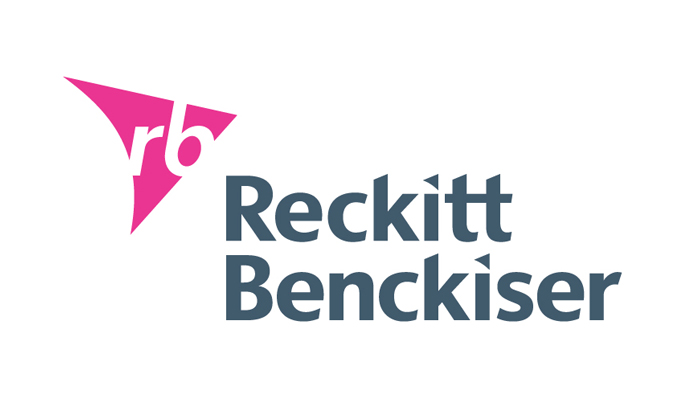
Is focusing on employee engagement essential for your organization? Well, we have three answers to that question –
- Yes.
- Of course.
- Definitely.
Within an organisation, engaged teams offer value far greater than the sum of their pay-checks. They are enthusiastic about what they do in the organisation and contribute effectively towards its growth. So, yes, team engagement is essential for impactful organisational success, when done right. This is especially true in a post-Covid world with flex or remote work scenarios becoming the norm. Water cooler conversations were not just a cultural adage, but also an understated team bonding tool.
Why Does Employee Engagement Matter?
Table of Contents
Almost a year back, Mckinsey attempted to find out more about employee engagement initiatives during a pandemic that was only a few months old then. Most respondents did confirm that they were adjusting satisfactorily to the new way of remote working. But many said that the crisis was affecting them mentally.
Considering the value any organization gets from an engaged employee, the article suggested some additional ways to ensure that leaders could keep their employees engaged. The article was only stating what leaders around the world had acknowledged. Employee engagement is always important, and more so in the present situation. Here are two ways in which your organization can benefit:
- Employees who feel engaged and valued at work are more likely to be passionate about their jobs. This would make them more productive. They would also handle client expectations better than others. That’s because passion and a positive attitude are contagious, and your clients will feel the same about doing business with such employees.
- Another reason why employee engagement strategies are crucial is that engaged employees live by the organization’s values and ethics every day. This makes them easier to work with. As you implement your employee engagement ideas, you will find your employees firmly in your corner and ready to give their best for the organization.
You must remember that all this doesn’t happen on its own. You need to invest your time and efforts to cultivate it. Let’s dive deeper into the subject and understand the employee engagement strategies that you can employ to improve your team for the better. The following five approaches can help in improving your employee engagement. The more you practice these employee engagement ideas in your organization, the better you become at motivating your peers and creating an engaged workforce:
1. Speak Openly and Encourage Vulnerability

As a leader, the best way of encouraging your team to voice their thoughts is by doing it yourself. Whether it’s on a one-to-one interaction or during a team call to discuss work, you must keep some time aside to express how you feel. You can talk about your small victories at work or outside, voice your fears or apprehensions, or relate a funny incident that happened with your kids.
Once you keep doing this, your team will realize it is very normal to open up. The second wave of the pandemic has given every family some difficult as well as happy times. People sharing their troubles can hope to get help from others. Those who relate a happy story of recovery from illness might encourage others, and even give a few helpful tips.
Keep doing this, and your employees will feel empowered and engaged enough to talk about work-related issues too. Employees are more likely to give their best at work if they feel their thoughts and opinions matter. Like we said, though, the leader has to initiate. And when your employees reciprocate and begin to voice their thoughts, it is incumbent on the leader to do something about it, if possible.
2. Offer Recognition Often and In Public Forums
According to SurveyMonkey, 63 percent of employees won’t consider looking for a new job if their employer recognizes and appreciates their work regularly.
Employee recognition correlates with team engagement. That is what www.greatplacetowork.com reiterated towards the end of 2020. Whether it’s sending them appreciation notes for their efforts or appreciating their contribution in a company-wide meeting, employee recognition can make far more impact on the engagement levels than financial gains.
You need not wait for meetings to appreciate an employee. You can do it anytime and repeat it whenever possible. This will encourage them to achieve their desired objectives and repeat those actions more often.
3. Have well-defined values and live by them

Every company has its core values that give direction to their business. Establishing values and guiding principles that your employees can relate to, will go a long way in contributing towards their satisfaction and lead to greater engagement. Having well-defined values and acting on them is the best way to encourage your team to do the same. Like in the case of your children, your employees will always do what you do, but not always do what you say.
Whatever your values are, make sure that they are short, reflect your culture, and are specific to the goals that your organisation wants to achieve. Your employees must relate to the culture and the impact it is creating on the world at large. It will motivate them to exemplify those values in their work. It helps to have these values written down and also how they link to KPIs and their growth in the organization. When values are tangibly linked to career progression they are more likely to inculcate and exhibit them.
4. Encourage all kinds of learning
At present, in-person training is almost impossible. So the training calendar and the modules would need some tweaking for online delivery. There are several ideas in virtual learning that can align well with your employee engagement plan. Look for newer tools like microlearning, gamification, and virtual scenarios to keep the interest alive.
But learning need not only be about making your employees better professionals. The first phase of the pandemic in 2020 saw thousands of people discovering skills they never knew they had. People danced, sang, cooked, wrote, and did so much else for the very first time in their lives. Why not institutionalize that idea by asking every employee to learn something new this year? That ‘something’ should have no relation to work. To show that you mean business, you could tie-up with a dozen or so professionals, to start with, who can teach one or the other non-work related skill. Something like culinary skills, playing the guitar, or even learning a new language if encouraged shows that you care about employees’ holistic development.
5. Focus on employee wellness and support

Focusing on employee wellness can have a cascading effect on organizational productivity. Prioritizing employee health encourages them and also leads to lower absenteeism and healthcare costs.
Wellness does include physical well being as well. But in recent months, enough health advisories are going around on social media which can help people improve their immunity and general health. You can, instead, focus on educating employees about other aspects like burnout, being grateful, or practicing mindfulness. You can establish a reward point system, where employees collect points for every accomplishment and move closer to their wellness goals. It will be a welcome change for them to compete with each other on wellness points rather than on sales figures. It will motivate them to make healthy choices in their professional as well as personal lives.
The Takeaway
Employees are the key to your organisation’s success. Hence, it’s worth investing efforts and resources into ensuring team engagement within your organization. The benefits it can offer are too many to ignore. Besides, with higher engagement levels, your employees will feel honored to be a part of your company and share its values, which is invaluable.
For more employee engagement strategies you can implement remotely, speak to our team for a custom program.





